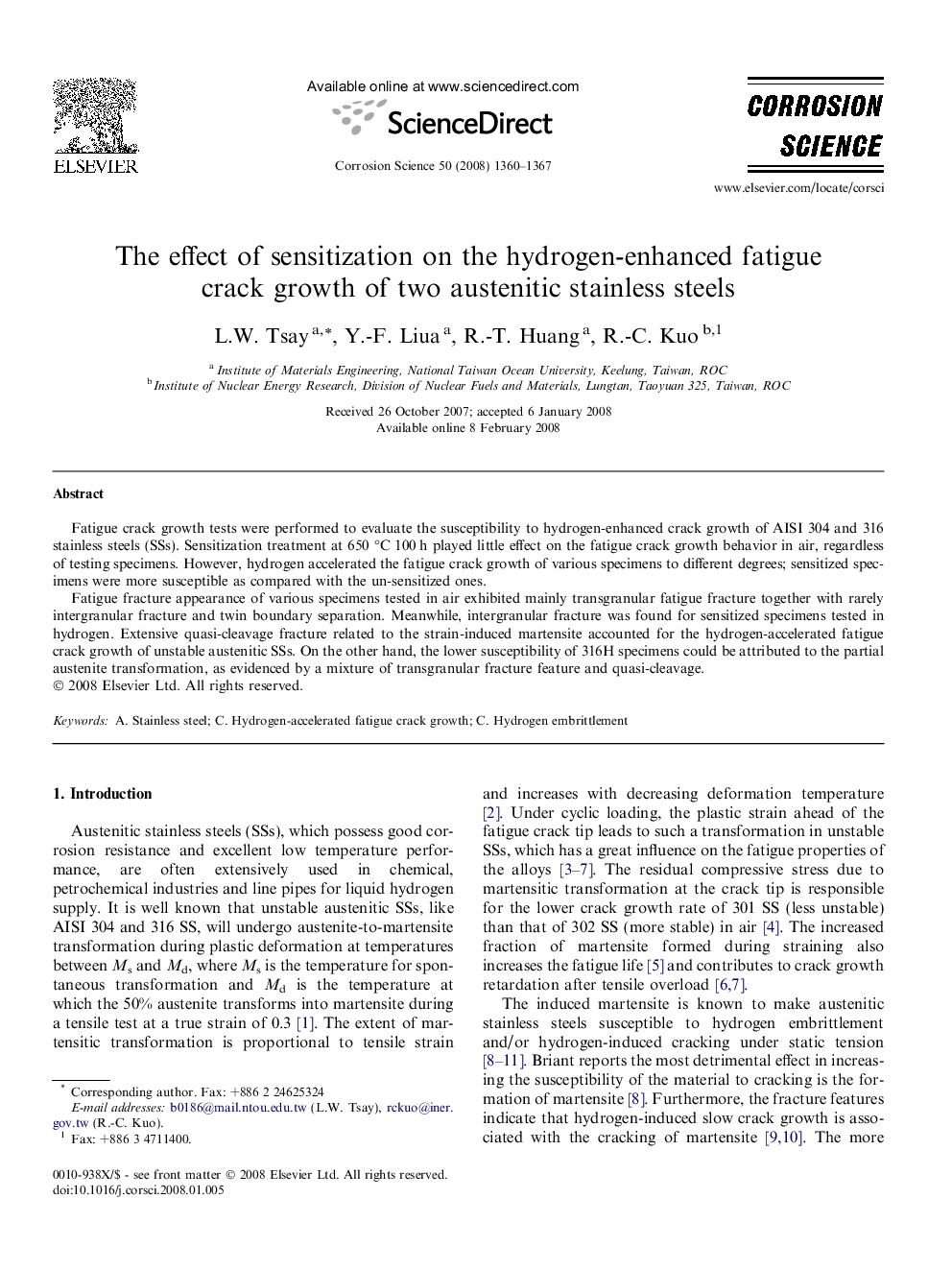| Article ID | Journal | Published Year | Pages | File Type |
|---|---|---|---|---|
| 1471771 | Corrosion Science | 2008 | 8 Pages |
Fatigue crack growth tests were performed to evaluate the susceptibility to hydrogen-enhanced crack growth of AISI 304 and 316 stainless steels (SSs). Sensitization treatment at 650 °C 100 h played little effect on the fatigue crack growth behavior in air, regardless of testing specimens. However, hydrogen accelerated the fatigue crack growth of various specimens to different degrees; sensitized specimens were more susceptible as compared with the un-sensitized ones.Fatigue fracture appearance of various specimens tested in air exhibited mainly transgranular fatigue fracture together with rarely intergranular fracture and twin boundary separation. Meanwhile, intergranular fracture was found for sensitized specimens tested in hydrogen. Extensive quasi-cleavage fracture related to the strain-induced martensite accounted for the hydrogen-accelerated fatigue crack growth of unstable austenitic SSs. On the other hand, the lower susceptibility of 316H specimens could be attributed to the partial austenite transformation, as evidenced by a mixture of transgranular fracture feature and quasi-cleavage.
